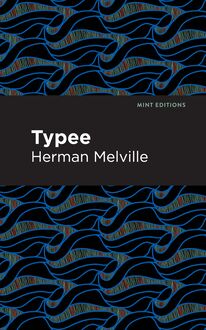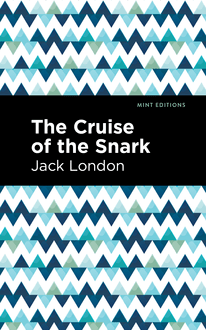-
 Univers
Univers
-
 Ebooks
Ebooks
-
 Livres audio
Livres audio
-
 Presse
Presse
-
 Podcasts
Podcasts
-
 BD
BD
-
 Documents
Documents
-
- Cours
- Révisions
- Ressources pédagogiques
- Sciences de l’éducation
- Manuels scolaires
- Langues
- Travaux de classe
- Annales de BEP
- Etudes supérieures
- Maternelle et primaire
- Fiches de lecture
- Orientation scolaire
- Méthodologie
- Corrigés de devoir
- Annales d’examens et concours
- Annales du bac
- Annales du brevet
- Rapports de stage
La lecture à portée de main
Vous pourrez modifier la taille du texte de cet ouvrage
Découvre YouScribe en t'inscrivant gratuitement
Je m'inscrisDécouvre YouScribe en t'inscrivant gratuitement
Je m'inscrisEn savoir plus
Vous pourrez modifier la taille du texte de cet ouvrage
En savoir plus

Description
In Seven Stages: A Flying Trap Around the World (1891) is a travel narrative by American journalist Elizabeth Bisland. When Bly’s journey—inspired by the travels of Phileas Fogg in Jules Verne’s Around the World in Eighty Days (1873)—was announced in Joseph Pulitzer’s popular newspaper the New York World, Cosmopolitan sent a young reporter of its own to race Bly across the globe. At the time, readers at home were encouraged to estimate the hour and day of Bisland’s arrival, generating national interest and launching a series of copycat adventures by ambitious voyagers over the next few decades. “My appetite for mystery at that hour of the day is always lamentably feeble, and it was nearly eleven before I found time to go and investigate this one, although the office in question was only a few minutes' walk from my residence. On arriving, the editor and owner of the magazine asked if I would leave New York that evening for San Francisco and continue from there around the world, endeavoring to complete the journey in some absurdly inadequate space of time.” Summoned from her life of work and leisure to undertake a several month journey around the world, Elizabeth Bisland rose to the occasion with courage and wit. Although Nellie Bly made it home five days before her—perhaps due to some subterfuge on the part of her publisher—Bisland took defeat in stride, writing an account filled with wonderful descriptions of her voyage. Ironic and self-effacing, Bisland’s account, although less popular than Bly’s, remains an essential work from the early days of tabloid entertainment and investigative journalism, a time when publishers were willing enough—or wild enough—to send correspondents on a globetrotting voyage in search of fame. With a beautifully designed cover and professionally typeset manuscript, this edition of Elizabeth Bisland’s In Seven Stages: A Flying Trap Around the World is a classic work of American travel literature reimagined for modern readers.
Sujets
Informations
| Publié par | Mint Editions |
| Date de parution | 28 septembre 2021 |
| Nombre de lectures | 0 |
| EAN13 | 9781513295084 |
| Langue | English |
| Poids de l'ouvrage | 1 Mo |
Informations légales : prix de location à la page 0,0350€. Cette information est donnée uniquement à titre indicatif conformément à la législation en vigueur.
Extrait
In Seven Stages
A Flying Trap Around the World
Elizabeth Bisland
In Seven Stages: A Flying Trap Around the World was first published in 1891.
This edition published by Mint Editions 2021.
ISBN 9781513292236 | E-ISBN 9781513295084
Published by Mint Editions®
minteditionbooks.com
Publishing Director: Jennifer Newens
Design & Production: Rachel Lopez Metzger
Project Manager: Micaela Clark
Typesetting: Westchester Publishing Services
C ONTENTS F IRST S TAGE S ECOND S TAGE T HIRD S TAGE F OURTH S TAGE F IFTH S TAGE S IXTH S TAGE S EVENTH S TAGE L AST S TAGE
First Stage
I f, on the 13th of November, 1889, some amateur prophet had foretold that I should spend Christmas Day of that year in the Indian Ocean, I hope I should not by any open and insulting incredulity have added new burdens to the trials of a hard-working soothsayer—I hope I should, with the gentleness due a severe case of aberrated predictiveness, have merely called his attention to that passage in the Koran in which it is written, “The Lord loveth a cheerful liar”—and bid him go in peace. Yet I did spend the 25th day of December steaming through the waters that wash the shores of the Indian Empire, and did do other things equally preposterous, of which I would not have believed myself capable if forewarned of them. I can only claim in excuse that these vagaries were unpremeditated, for the prophets neglected their opportunity and I received no augury.
On the 14th of November of the aforementioned year, I was awakened at eight o’clock as usual by the maid with the breakfast tray—which also contained the morning papers and a neat pile of notes and letters. Among these latter were acceptances of invitations I had sent to half a dozen agreeable folk to come and drink five-o’clock tea with me on the 15th, the usual communications from one’s friends on casual subjects; an invitation to dinner; a bill; and a notice from my tailor that I might sometime during the day have the final fitting of a gown in process of construction. All as pleasantly commonplace as the most mild-mannered individual could expect or desire.
I read the papers leisurely, made a calm and uneventful toilet, and the very first intimation I received of the coming thunderbolt out of the serene sky of my existence was a hurried and mysterious request, at half-past ten o’clock, that I would come as soon as possible to the office of the magazine of which I was one of the editors. My appetite for mystery at that hour of the day is always lamentably feeble, and it was nearly eleven before I found time to go and investigate this one, although the office in question was only a few minutes’ walk from my residence. On arriving, the editor and owner of the magazine asked if I would leave New York that evening for San Francisco and continue from there around the world, endeavoring to complete the journey in some absurdly inadequate space of time.
If my appetite for mystery at that hour is not strong, my appetite at eleven in the morning for even the most excruciatingly funny jokes may be said to actually not exist, and this one, I remember, bored me more than most. But in the course of half an hour I had become convinced that the editor really wished me to make the attempt, and I had earnestly endeavored to convince him that I meant to do nothing of the sort. To begin with, I didn’t wish to. In the second place, guests were coming to my house to tea on the following day; thirdly, I was not prepared in the matter of appropriate garments for such an abrupt departure, and lastly, but most weightily, I foresaw the notoriety that an effort to outdo the feat of Jules Verne’s hero was likely to bring upon me, and to this notoriety I most earnestly objected. Though for some years I had been more or less connected with journalism, I had appeared in the papers only as the contributor of unsigned articles, and the amount of distress I experienced when I first saw my name in a head line was so far beyond even my anticipations that I then and there registered a vow—Throughout this voyage I had cause to owe much gratitude to journalists for all manner of aid and civility, but I resolved in the future to so endeavor to conduct myself that they would never have reason to put my name in a head line again.
The editor and I having passed the better part of an hour going over this matter, substantial arguments were finally advanced by him which persuaded me to make the experiment of lowering the circumnavigatory record. I then took a cab and drove to my tailor for the appointed fitting and for a vigorous interview in which he was ultimately convinced that I could wear that gown at six o’clock in the evening.
The next few hours were busy ones.
To the masculine mind there appears to be something strangely exhilarating in the thought of a woman being abruptly torn from her home without sufficient time to put her wardrobe in order, and to all the men responsible for this voyage the most delightful feature apparently of the whole affair was the fact that I should be forced to get ready in five hours for a seventy-five days’ voyage around the world.—Why this should be so a woman cannot easily divine. It fails utterly to appeal to her sense of humor. It is one of those hopeless warps in the male mind that my sex no longer attempt to comprehend or to straighten, and, finding it incurable, have learned to bear with and ignore it as far as possible.
I finally managed to get all absolute necessaries of travel into a good-sized steamer trunk, a large Gladstone bag and a shawl-strap, but found, by experience, that my progress would have been in no degree retarded, and my comfort and happiness far better served, by carrying a second and larger box with everything I could possibly have required. I managed the trip on two cloth gowns, half a dozen light bodices, and an evening silk, but might quite as well have carried my entire winter and a large part of my summer wardrobe. Happily I took the precaution of carrying plenty of pins and hair-pins. I had had some previous experience with their vicious ways, and well knew that in critical moments in foreign parts they would get up playful little games of hide-and-seek that would tend to undermine my temper, and the only sure preventive was to have geologic layers of them all through the trunk, so that a shaft might be hastily sunk through one’s belongings at any moment with a serene certainty of striking rich deposits of both necessities of female existence.
… To wake up in the morning to one’s usual daily duties and find one’s self at night voyaging round the world is an experience calculated to surprise even a mind as composed as that of Pet Marjorie’s historically placid fowl; and looking back now over the time of my departure I find that, though to outward seeming I also was
“… most exceeding ca’m,”
in reality I was practically stupefied with astonishment for at least two days.
I remember thinking rapidly on all manner of subjects; telling myself warningly that it would not do to forget anything or make any mistakes, as they could not be rectified… I remember thinking that my new gown fitted very well, and that, though my face was drawn and white with the excitement and fatigues of the day, my new hat was distinctly becoming… Then there were cabs and hurry—kisses—last directions—the bumping of the box on the stair—a big bunch of pink roses (which I felt was a nice complimentary touch to my travelling ensemble)—everybody talking at once and giving different advice and directions—the glare of lights—the coffin-like smell of a sleeping-car—and I was off for seventy-five days’ travel round the globe.
… Then no more distinct impressions until Chicago suddenly steps across my twenty-five-thousand-mile path and it is necessary to change cars.
… Even this is vague. I remember that through some mistake there was no one there to meet me as had been arranged—that I wandered about a vast, gloomy, and rather empty station in the care of a friendly conductor—that I sat on a high stool at a counter and quenched internal cravings, caused by lack of dinner, with tea and ham; every mouthful regarded with wan interest by the person who officiated in the echoing lunch hall—that the conductor having bidden me a commiserating adieu, I slid away into the night, very homesick, very cross, and haunted by the bitterest suspicions of the happy results of a tea-and-ham dinner.
But with that night’s sleep I slept away my stupefaction of amazement, and awoke at daybreak in my right mind, and, pulling up my window curtain, found the sun almost ready to rise.
I have never permitted a vulgar familiarity to dull my keen delight in the ever-varying pageant of the breaking of day; so that, consequently, on the rare occasions when I assist at this function, my pleasure has all the enthusiasm of novelty.
Now the lifted curtain showed me a New Jerusalem… As if to one who should rise to pray at the moment when God gave his great daily fiat of “Let there be light,” there should be vouchsafed a white, luminous foreshadowing of that which it hath not entered into the heart of man to understand… Not the strangely narrow and urban vision of Patmos; no streets or walls, but a limitless Land of Pearl!
… Soft undulations, full and tender as the bosom of a sleeping mother, rose and fell far beyond the eye’s reach, and melted into the sky. No tree or thicket broke the suave outlines, but where the thin silver veins of the streams slipped through the curves of the plain, slim, leafless willows hung, like glistening fringes… In the night a hoar frost had fallen that was to snow as sleep is to death; and the pale reaped fields, the sere meadows, and silent uplands were transfigured by the first gleam of day to a mystery and glory of silver and pearl. As the light grew, nacreous tints of milky blue and rose flushed the argent pallor of the land, and when the yellow disk rolled up over
-
 Univers
Univers
-
 Ebooks
Ebooks
-
 Livres audio
Livres audio
-
 Presse
Presse
-
 Podcasts
Podcasts
-
 BD
BD
-
 Documents
Documents
-
Jeunesse
-
Littérature
-
Ressources professionnelles
-
Santé et bien-être
-
Savoirs
-
Education
-
Loisirs et hobbies
-
Art, musique et cinéma
-
Actualité et débat de société
-
Jeunesse
-
Littérature
-
Ressources professionnelles
-
Santé et bien-être
-
Savoirs
-
Education
-
Loisirs et hobbies
-
Art, musique et cinéma
-
Actualité et débat de société
-
Actualités
-
Lifestyle
-
Presse jeunesse
-
Presse professionnelle
-
Pratique
-
Presse sportive
-
Presse internationale
-
Culture & Médias
-
Action et Aventures
-
Science-fiction et Fantasy
-
Société
-
Jeunesse
-
Littérature
-
Ressources professionnelles
-
Santé et bien-être
-
Savoirs
-
Education
-
Loisirs et hobbies
-
Art, musique et cinéma
-
Actualité et débat de société
- Cours
- Révisions
- Ressources pédagogiques
- Sciences de l’éducation
- Manuels scolaires
- Langues
- Travaux de classe
- Annales de BEP
- Etudes supérieures
- Maternelle et primaire
- Fiches de lecture
- Orientation scolaire
- Méthodologie
- Corrigés de devoir
- Annales d’examens et concours
- Annales du bac
- Annales du brevet
- Rapports de stage











